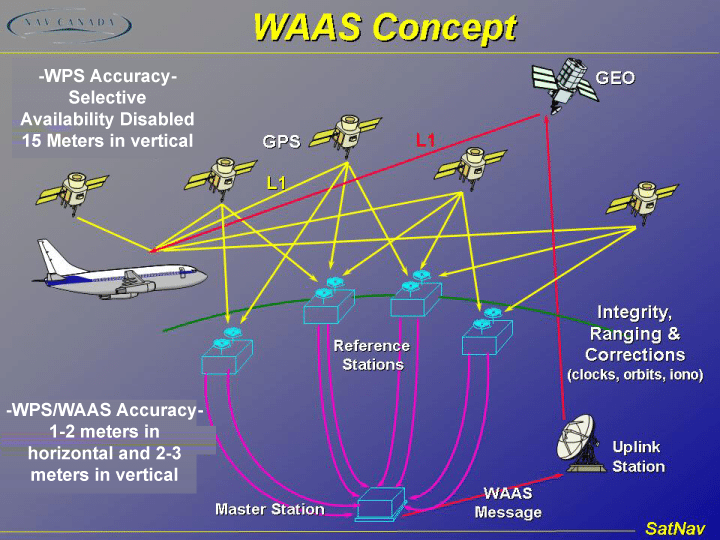
The FAA’s wide-area augmentation system (WAAS). Graphic courtesy of the FAA
The FAA has awarded Intelsat, along with a team of other companies, a new task order to develop and operate a satellite payload to aid aircraft navigation without dependence on ground-based infrastructure, particularly precision approaches to airports.
The payload will be part of the FAA’s wide-area augmentation system (WAAS) that corrects and enhances information provided by GPS satellites to give commercial and civilian pilots more precise approach and departure guidance. WAAS provides safety improvements in the national airspace and has been operational since 2003. This hosted payload, known as geostationary Earth satellite (GEO) 7, is the seventh payload delivering a continuous and robust signal in space across the contiguous U.S. and Alaska. This payload is part of an ongoing WAAS constellation replenishment and sustainment effort by the FAA.
Leidos is the lead company on the task order, which has a four-year development phase followed by a 10-year operations and maintenance phase. Intelsat subsidiary Intelsat General is hosting a similar WAAS payload (GEO 3) on Intelsat’s Galaxy 15 satellite.
Intelsat General will design, develop and host the WAAS GEO 7 payload and then integrate it into a new Intelsat Galaxy 30 satellite being built by Orbital ATK. The Galaxy 30 satellite is set for launch in the first half of 2020 and will be located at 125 degrees west.
During the 10-year operational phase, Intelsat General will provide ground uplink services to the payload through Intelsat’s teleport in Napa, California, as well as operations and maintenance services.
“We encourage other federal agencies with critical space missions to follow the FAA’s lead and take advantage of the value and speed a commercially hosted payload can deliver,” said Skot Butler, president of Intelsat General. “This new payload will provide commercial and civilian pilots with the additional visibility and vital information needed to help ensure a safe flight, particularly when landing in limited visibility or difficult weather.”
This was originally published at Via Satellite.